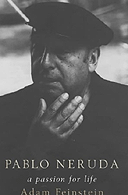 Asking
for Information
Asking
for Information
A. Read the email below and tick
the correct statements.
a.
It’s the first time Richard has written to the organization.
b.
He has never been part of a conversation group before.
c.
He wants to find out about a job.
d.
He asks information about transport.
e.
He asks about equipment.
f.
He says how he found out about the group.
B. Complete the email with the
words in the box.
grateful provided let
keen regards
advert join
experience
confirm
forward
|

Language in Use
How much do
you remember about indirect questions? Let’s revise some important aspects:
In
writing, we often use this type of questions to sound polite. Indirect
questions
- Use statement word order
- Don’t use do/does/did
- Use if
/whether when there isn’t a
question word
- Often use introductory phrases like: I
would like to …
|
A.
Find indirect questions
in the email, write them in you notebook and double check whether all the
aspects listed above are included.
B.
Make indirect
questions using the introductory phrases. Write them down in your notebook.
1. Do I have to wear anything special?
Can you confirm……………………………….......?
2. How is transport to each session organized?
I would like to know …………………………..
3. Where is the nearest car park to the gym?
I wonder …………………………………………?
4. Does your tutor have a good success rate?
Could you tell me ………………………………?
5. How much does a course of lessons cost?
I’d be grateful if you could tell
me ……………..
6. Will I have to take an exam or a test?
I would like you to confirm …………………….
Project: Study Abroad!
You are going to write an email to a foreign language school asking for information about their
courses.
Follow the steps below:
1.
Browse these links and choose a language school that appeals you.
2. Use the content checklist below to plan your text.
- How
you heard about and/or got interested in the course.
- Specific skills you want to improve
- Hours a week
- Accommodation
- Cost (tuition, lodging,etc)
- After-school activities
- Trips to other places in the country
- (Your own)
3. Use the checklist to handwrite your
first draft. Hand in your work to
your teacher at the end of the lab
session.
VERY IMPORTANT!
When your teacher returns
you your first draft with her comments and suggestions, you should type a
second improved draft and send your email to the Institution you have
chosen. Hopefully you will get an answer, which must be printed and
submitted for correction and marking together with all the preliminary steps requested to
complete this assignment.
|





